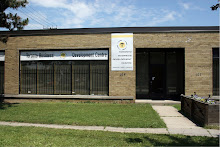 We see competition every day in almost everything we do. Whether it is purchasing necessities of life or deciding on how to use our discretionary budget. Competition keeps us on our toes.
We see competition every day in almost everything we do. Whether it is purchasing necessities of life or deciding on how to use our discretionary budget. Competition keeps us on our toes.We run across situations where the competition may be much larger and established. When starting a business it is often one of the most common obstacles to overcome. How do you compete with the big guys?
When you run into that kind of competitive situation think about your own buying habits. Specifically identify the suppliers you patronize who are not the big players. It could be the corner store, an independent garage, or any number of privately owned retail outlets.
Once you have this list, make another stating the reasons why you do business with them instead of the larger alternatives.
Your business can compete with the big guys. It may not be on total revenues, employee count or physical size of facilities. If those are the most important factors when your customer makes a purchasing decision, you are not likely going to get the business.
If your prospects are looking for the same characteristics demonstrated by the smaller suppliers you deal with on an ongoing basis, you can be superior and compete very successfully. It has been said many times by many people - bigger is not always better.








